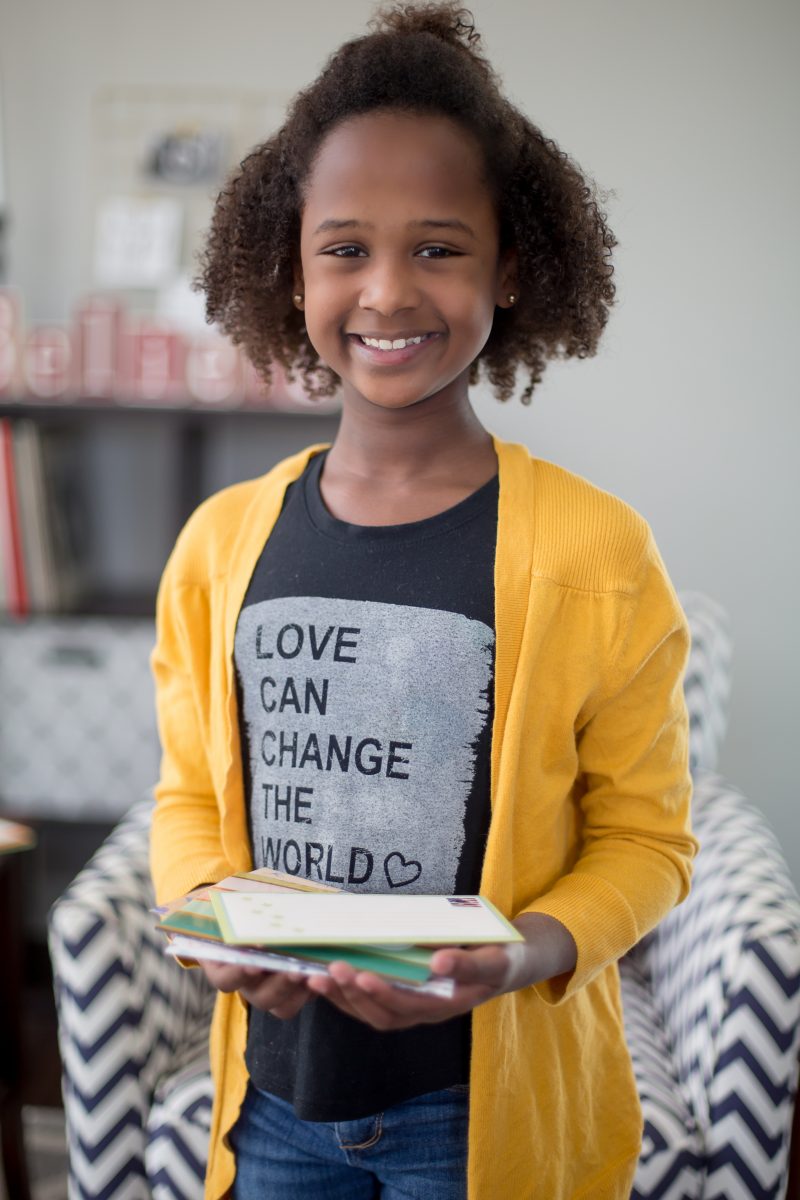I flip the last pancake on the breakfast plate of my youngest daughter, as my other hand dials into my conference call. I throw some oranges on the table, and I walk into our home office to have a conversation with a coworker. On this call, we discuss how to provide community support and social integration for refugees when communities across the country are “sheltering in place” and people are “social distancing.” I leave the call feeling overwhelmed by COVID-19 and paralyzed by how this will impact the support our community will be able provide for each other, and our newest community members, refugees and immigrants.
My youngest daughter pokes her head into my office. She smiles and thanks me for breakfast. She then asks if she can send a letter to a friend. We get out some craft supplies, and she begins to write. I head back to my office to work. In about 30 minutes, my daughter returns having completed six letters to six different friends. Together we add stamps and drop the letters in the mailbox. As I head back to my office, I hear her video call another friend.
The COVID-19 pandemic may be preventing my daughter from being in the physical presence of her community, however, it isn’t stopping her from participating and being an active member. Community is telling others that they matter to you. It’s letting people know they are important. It’s extending support. Providing care. All these actions can be done whether we are with someone in real life or not.
We can all stand for welcome even when we can’t be physically present for one another. We can extend support by ordering food staples and toiletries and having them delivered to a refugee family’s home; by gifting them with subscription to Netflix, Disney+, or Hulu to help keep their kids occupied; or by providing them with rental assistance. We can also let newer members of our communities know they matter to us by staying in touch with them by phone or text, by practicing English via video call, or by sending cards via mail. We can use this time to educate ourselves on the contributions refugees make to our communities and the unique challenges they face by reading books written by or for refugees, watching a film and television show on the refugee experience, or streaming stories via YouTube. You can find a few recommendations here.
There are so many ways we can support newcomers during this uncertain time. A great place to start might be Thirty Ways to Care for Yourself, Others, and Immigrants during COVID-19. Consider making this a family activity and print it out and hang it on your fridge. Your kids will get a kick out choosing what task to do each day. Yesterday, my family had a dance party listening to the Refugee All Stars! If you need a pick-me-up during all the COVID-19 news, I strongly recommend starting on that square. You won’t be disappointed! If you’d more ideas visit the Church World Service toolkit here.
Stacey Clack, Former Community Sponsor and Mid-West Faith Community Organizer, Church World Service
